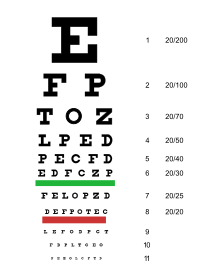- God is Good in His Being
- God is Good in His Character
- God is Good in His Acts
To the rich young ruler, Jesus declared that only God is good (Matt.19:17), i.e. in the sense of being the absolute good and perfect Teacher who alone can absolutely declare the truth that leads to eternal life. Sadly, the rich young ruler could not accept Jesus as the Good Master, refusing to follow Him. In his eyes, the world and its possessions were the more immediate good.
There are at least four crisis-situations in relation to our attitude towards God's goodness.
1. Doubt Regarding the Selflessness of God's Goodness
This was the situation that Eve faced in the garden of Eden when the devil deceived her to doubt that God's goodness is selfless. He tried to make her think that God had some selfishness in keeping the forbidden tree's fruit from humans; He knew if they ate of it they would become like gods. The devil attempted to severe "goodness" from God's goodness. As a result, when Eve was deceived and sought the good apart from God, the forbidden fruit and tree appeared to be "good" in relation to her desire.
It is important to trust in God's goodness as being selfless and impartial. He makes the sun to shine on both the just and the unjust. He is not good because of anything or anyone. He is good in Himself and is the ground of all that is good.
2. Fear Regarding the Surety of God's Goodness
In Psalm 27, we find David assert that even if he is surrounded by enemies on all sides, he will not fear because God is with him. When we become afraid if God's goodness would hold towards us and we are terrorized by uncertainty and anxiety about the future, we begin to lose hope. But, David asserts: I would have lost heart, unless I had believed That I would see the goodness of the LORD In the land of the living. "Wait on the LORD; Be of good courage, And He shall strengthen your heart; Wait, I say, on the LORD!" (Psa 27:13-14 NKJ).
The Scripture promises us: "And we know that all things work together for good to those who love God, to those who are the called according to His purpose." (Rom 8:28 NKJ)
3. Vexation Regarding the Significance of God's Goodness
In Psalm 73, Asaph, a priest in the Temple of Solomon is vexed and frustrated because He knows that God is good (Psalm 73), but fails to see how God's Goodness has any significance for him. He looks at the wicked and sees them prosper and asks if he has cleansed his heart in vain (Psalm 73:13). This turns him bitter, though he doesn't show his inner struggle to people. But, then when he enters God's sanctuary, where he beholds God's goodness and beauty, he finds the solution to his problem. He has to learn that God's goodness is not something about things and possessions in this world; God Himself is Good, and the heart that this Summum Bonum needs nothing else. One doesn't find any true and lasting meaning in life unless one finds satisfaction in God alone. He writes:
Whom have I in heaven but You? And there is none upon earth that I desire besides You.He has understood that good is not about things, heaven is no heaven without God; for God alone is good and it is good to be near God alone.
My flesh and my heart fail; But God is the strength of my heart and my portion forever.
For indeed, those who are far from You shall perish; You have destroyed all those who desert You for harlotry.
But it is good for me to draw near to God; I have put my trust in the Lord GOD, That I may declare all Your works. (Psa 73:25-28 NKJ)
4. Confusion Regarding the Sensitiveness of God's Goodness
Job is a great paragon of patience in the Bible. However, there was a time he was confused too, because he knew that God is good and perfect, He is blessed; but, he was unable to see if God really cared for him. The devil wanted to prove that the just served God, or were just, for material or personal benefits alone. But, Job proved the devil false. That is the difference between true faith and utilitarian faith. Job stood through the test. Yet, Job felt darkness and confusion cover him. He cries out in anguish: "If I cry out concerning wrong, I am not heard. If I cry aloud, there is no justice. (Job 19:7 NKJ). But, God answer him from chapters 38-41 and shows how God cares for the universe; how much more for Job. In chapter 42, Job breaks down saying "I have heard of You by the hearing of the ear, But now my eye sees You. Therefore I abhor myself, And repent in dust and ashes." (Job 42:5-6 NKJ)
God cares for the sparrows of the air and the lilies of the field; how much more for us..
His goodness is selfless, sure, significant, and sensitive. He is all-giving, all-trustworthy, all-satisfying, and all-caring.


